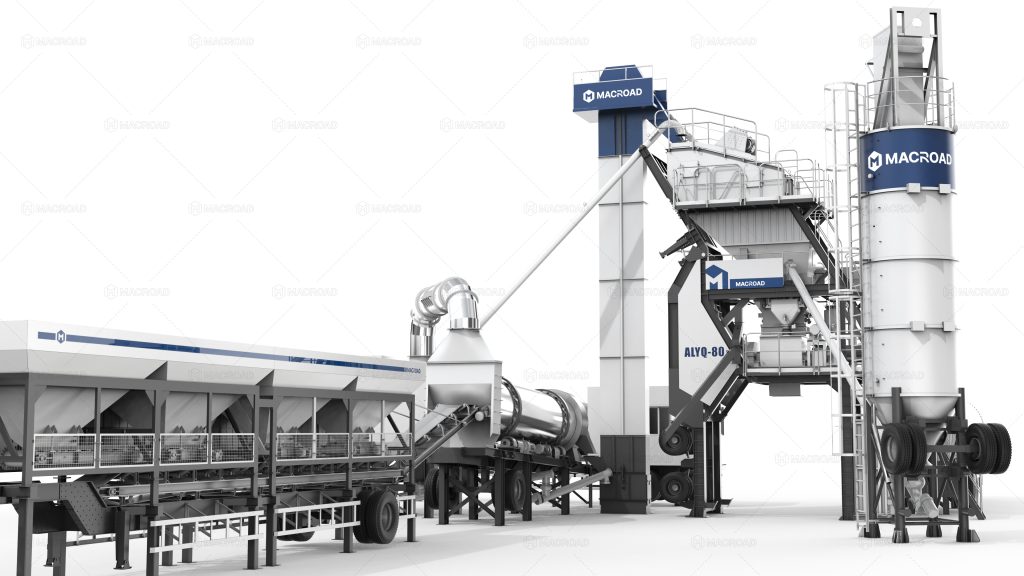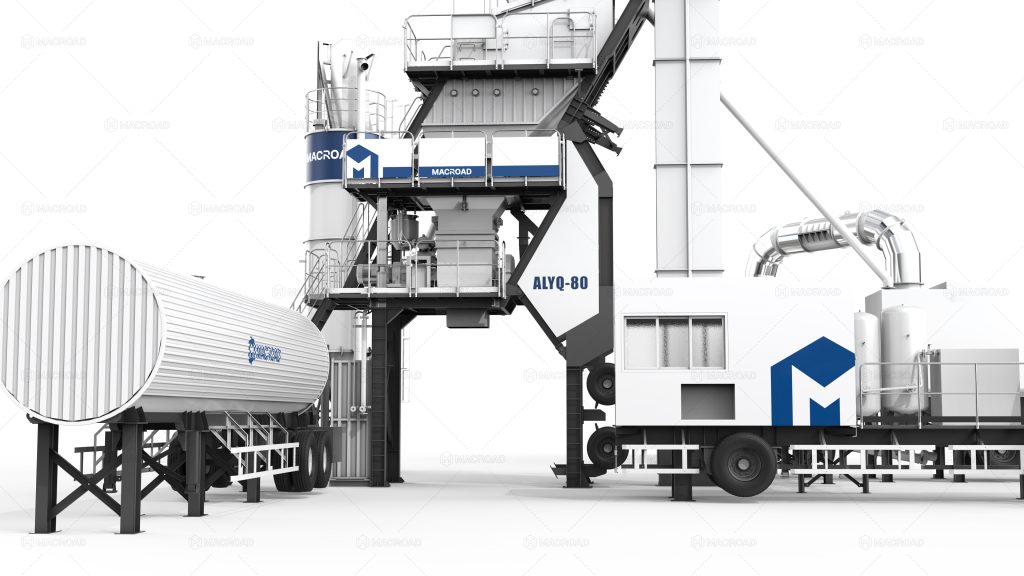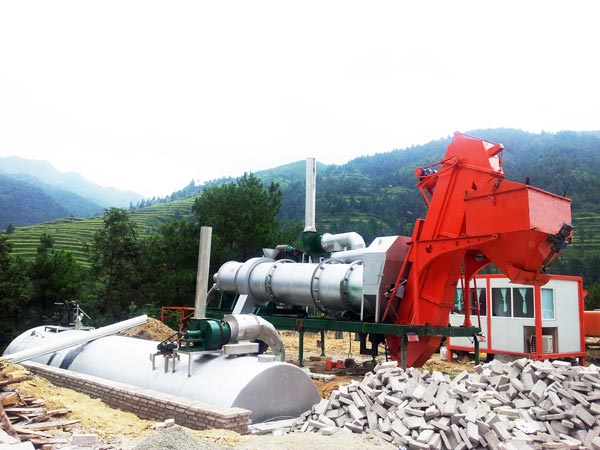When working in mountainous regions, flexibility in asphalt production is crucial for meeting the unique challenges posed by rugged terrain and variable access. Both mobile and portable asphalt plants offer advantages, but understanding which type is more adaptable in these environments can greatly influence project success. This article explores the flexibility of mobile and portable asphalt plants, focusing on their suitability for mountainous areas.

Mobile Asphalt Plants: Adapting to Terrain
Mobile asphalt plants are designed for quick relocation and setup, making them highly adaptable to varying site conditions. Their ability to be transported easily allows contractors to move them closer to the project site, which is particularly advantageous in mountainous areas where access may be limited. The compact design of mobile plants enables them to navigate narrow roads and steep inclines, ensuring that asphalt production can occur as close to the point of use as possible.
In addition, asphalt mobile plant often come equipped with advanced technology that facilitates real-time adjustments to mix designs. This flexibility allows operators to modify asphalt formulas based on local materials or specific project requirements, such as producing a mix that can withstand the temperature fluctuations typical in mountainous regions. By using a mobile plant, contractors can respond swiftly to changing conditions, ensuring that they maintain production efficiency despite the challenges of the environment.

Portable Asphalt Plants: Versatile Solutions
Portable asphalt plants, while also designed for easy transport, tend to be more suited for specific applications rather than frequent relocation. These plants are typically lighter and can be set up more rapidly than their mobile counterparts. In some cases, this can be advantageous in mountainous areas where quick deployment is necessary. However, their flexibility may be limited when it comes to handling diverse asphalt mixes and adjusting to varying site conditions.
Portable plants often excel in projects requiring consistent production over a set period. For example, if a contractor is focusing on a specific section of a road in a mountainous area, a portable plant can be stationed nearby to ensure a steady supply of asphalt. However, if the project scope changes or additional sites need asphalt, the ability to relocate portable asphalt mixing plant quickly may not match the adaptability of a mobile plant.

Considerations for Project Management
When deciding between mobile and portable asphalt plants for mountainous areas, project managers must consider several factors. Access to the site plays a significant role; if the project involves steep slopes or narrow access roads, the mobility of the plant becomes a critical factor. Mobile plants can be transported to challenging locations more effectively, allowing for timely production without requiring extensive site preparation.
Another important consideration is the production capacity. Mobile asphalt plants generally have a higher output, which can be vital in larger projects or when multiple batches are needed quickly. In contrast, portable plants may have limitations on production rates, which could affect overall project timelines, especially in demanding conditions.
Cost is also a crucial factor in the decision-making process. While mobile plants may offer greater flexibility, they often come with higher initial investment and operational costs. Conversely, portable plants may be more budget-friendly but might not provide the same level of adaptability in challenging mountainous terrain.
Conclusion
In summary, both mobile and portable asphalt plants have their unique advantages and limitations when it comes to flexibility in mountainous areas. Mobile asphalt plants excel in adaptability, allowing for quick relocation and real-time adjustments to mix designs, which is essential for navigating rugged terrain. Portable asphalt plants, while easier to set up and more cost-effective for specific projects, may lack the same level of versatility.
Contractors must carefully evaluate their project requirements, site conditions, and budget constraints when choosing between these two types of asphalt plants. By understanding the strengths of each option, project managers can ensure that they select the most suitable asphalt production solution for their needs, ultimately leading to successful outcomes in challenging environments.